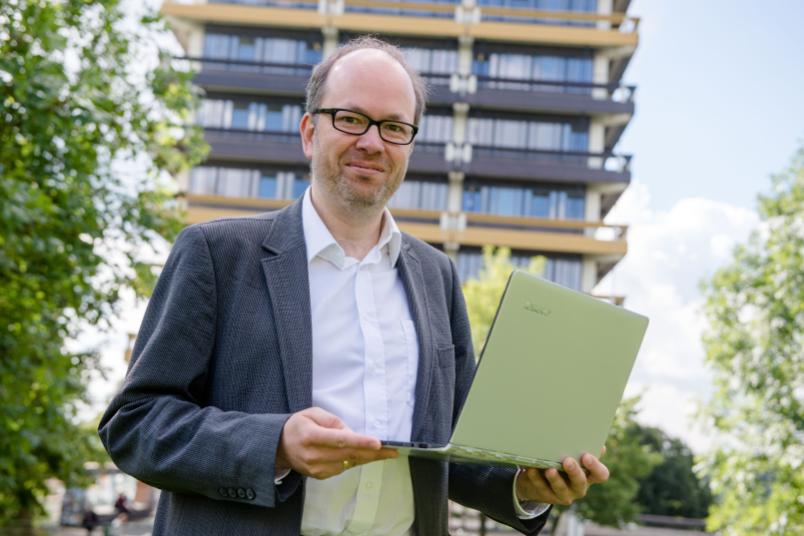
Philosophy God has not yet been excluded
Together with medical informatics and bioinformatics experts, the philosopher is developing computer-based description of the knowledge of the world.
In order to create correlations between the huge amounts of data generated by researchers as well as old and new knowledge, scientists require a standardised digital representation of that knowledge: a so-called ontology. It ensures that computers are able to handle the relevant information. Private lecturer Dr Ludger Jansen researches into methods of describing the necessary knowledge in simple terms and unambiguous relations.
The link between philosophy and computer is not obvious. Has it been your plan from the outset to work in this field?
When I took up my studies, this field did not yet exist. I wrote my PhD thesis about the ontology of Aristotle. But when I started collaborating with medical informatics experts, I felt surprisingly well prepared. The problems regarding the description of the world are often the same as the ones that kept Plato and Aristotle busy.

Sometimes, people just haven’t read their Plato or Aristotle.
If this is the case, don’t you have the impression that humanity hasn’t made any noticeable progress with regard to these problems for thousands of years?
Humanity did make progress: today, we know much more about the biological world. But its fundamental description raises the same questions over and over again. Sometimes, people just haven’t read their Plato or Aristotle. No wonder, as they are not part of the normal curriculum in medical information science and bioinformatics. This is why collaboration with philosophers makes a lot of sense.
You work at the Faculty of Catholic Theology. How does God fit into the description of biological correlations as products of evolution?
In the interpretation of biology, God has not yet been excluded. He can well be a smart creator who uses chance and evolution as his instruments.